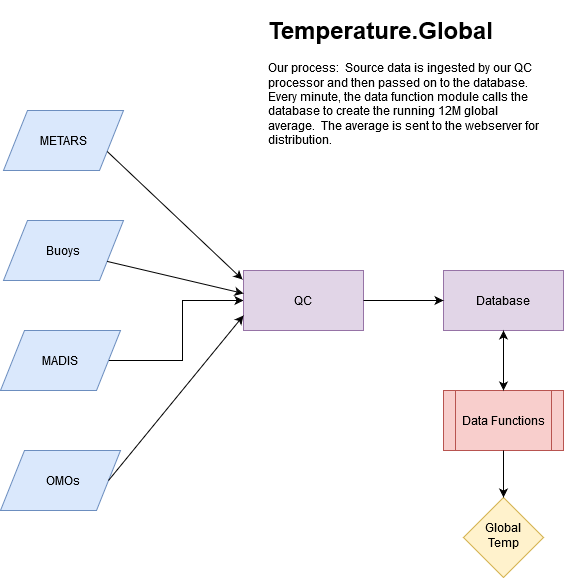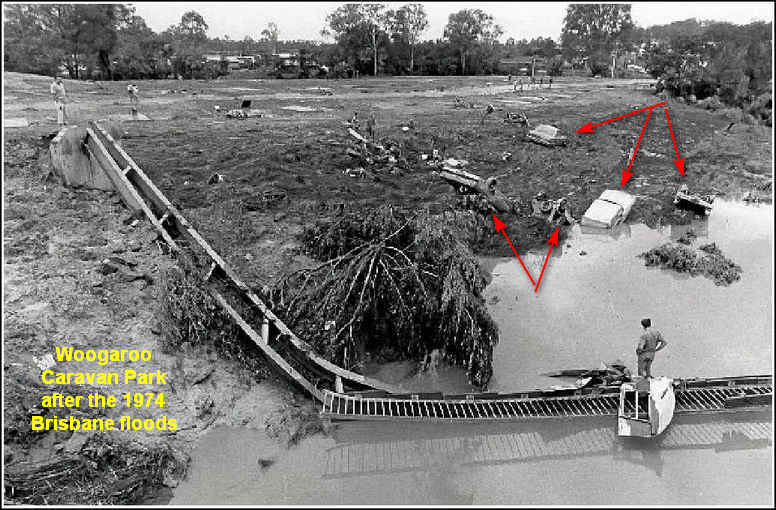|
|
Post by acidohm on Nov 19, 2021 5:58:28 GMT
That forecast in 7 days northerly makes it to Africa!! The evolution of this setup is now within certainty, the bits are coming together...  And just like that it's gone. Winter cancelled for now 🤦🏼♂️ |
|
|
|
Post by ratty on Nov 19, 2021 5:59:32 GMT
... but the local councils who approved the developments collected more revenue, so it's OK?  |
|
|
|
Post by missouriboy on Nov 19, 2021 8:35:24 GMT
|
|
|
|
Post by pbfoot on Nov 19, 2021 13:18:43 GMT
... but the local councils who approved the developments collected more revenue, so it's OK?  They have done the same in Houston. Paved over the Bayous and built neighborhoods that they know will flood. The flooding has been worse since Harvey imho due to debris clogging the system. |
|
|
|
Post by Sigurdur on Nov 19, 2021 13:23:21 GMT
Yep. And it is flooding. Color me surprised. |
|
|
|
Post by missouriboy on Nov 19, 2021 15:23:15 GMT
Yep. And it is flooding. Color me surprised. Like building your house on a beach and acting surprised when it washes away. |
|
|
|
Post by phydeaux2363 on Nov 19, 2021 15:37:41 GMT
Yep. And it is flooding. Color me surprised. Like building your house on a beach and acting surprised when it washes away. Careful, Mr. Moboy. I resemble that remark! (Except for the surprised part). |
|
|
|
Post by duwayne on Nov 19, 2021 16:29:16 GMT
The temperature "slope" calculation from 2015-2020 using the numbers above is +0.06C per year or +6C per century. The UAH temperatures warmed at +0.02C per year over the same period or 1/3 the rate.
I'd be interested in how they calculate the anomalies. Are the base period numbers from the same stations?
I'd hate to see people get roped in because they like to see negative anomalies. And then find out later that the base numbers are giving a misleading result. And as time passes, the warming turns out to be overstated.
I don't know that there is really enough here to make any conclusions about a trend anyway, do you think? Sure you can draw the line, but is it meaningful. I agree that 6 years is too short to draw any firm conclusions with respect to long term temperature trends. But here we are checking numbers by the minute.
I wish "temperature.global" would provide more details on their approach. They appear to be using base year numbers which aren't totally consistent with the current temperatures being reported. In other words, the base year numbers which are subtracted from the current temperatures to get the anomalies which are reported may not be for the same sites as being currently reported. But that's only speculation on my part.
The idea of providing real time unadjusted global temperatures is appealing. In addition to the question above, see another possible problem with interpreting what they are reporting.
The ocean covers 75% of the earth's surface. Is this area under-represented in the average? Much of the land area in the world is away from urban warming. Is the rural area under-represented in their numbers? Is it possible that the global average temperatures reported by "temperature.global" overstates the true global warming by including a disproportionate percentage of locations near cities which are subject to the urban heating effect?
|
|
|
|
Post by missouriboy on Nov 19, 2021 17:25:28 GMT
I don't know that there is really enough here to make any conclusions about a trend anyway, do you think? Sure you can draw the line, but is it meaningful. I agree that 6 years is too short to draw any firm conclusions with respect to long term temperature trends. But here we are checking numbers by the minute.
I wish "temperature.global" would provide more details on their approach. They appear to be using base year numbers which aren't totally consistent with the current temperatures being reported. In other words, the base year numbers which are subtracted from the current temperatures to get the anomalies which are reported may not be for the same sites as being currently reported. But that's only speculation on my part.
The idea of providing real time unadjusted global temperatures is appealing. In addition to the question above, see another possible problem with interpreting what they are reporting. The ocean covers 75% of the earth's surface. Is this area under-represented in the average? Much of the land area in the world is away from urban warming. Is the rural area under-represented in their numbers? Is it possible that the global average temperatures reported by "temperature.global" overstates the true global warming by including a disproportionate percentage of locations near cities which are subject to the urban heating effect?
Looking at their input graphic, it would appear they have "ocean" buoys. Last hour = 54000 reporting stations (I assume of all types). On land, one would expect that recording stations would over-represent where people live, although they probably include many more small places than NOAA? There may be some regional weighting that occurs (speculation). I'm impressed that their annual anomalies track UAH so well. Graph one page back.  |
|
|
|
Post by pbfoot on Nov 20, 2021 0:18:33 GMT
Sharing is caring. At least they are being up front about it. The failure of the Texas power grid last winter lies solely in the lap of the Obama Administration. The pumps on the intrastate gas lines used to be powered by the natural gas in the pipeline. Obama's EPA decided that was too polluting so the pumps were converted to electricity and tied to the grid,so when the power failed, the pumps failed. Then no natural gas. My comment is not related to the article. www.zerohedge.com/commodities/rolling-blackouts-possible-texas-midwest-if-extreme-cold-winter |
|
|
|
Post by ratty on Nov 20, 2021 7:31:07 GMT
... but the local councils who approved the developments collected more revenue, so it's OK?  They have done the same in Houston. Paved over the Bayous and built neighborhoods that they know will flood. The flooding has been worse since Harvey imho due to debris clogging the system. During the 1974 Brisbane River flood, we lived on the banks (high side, thankfully) of the tributary Bremer River; at the height of the flood, the Bremer was a noisy, raging nightmare of a torrent that reached the barbed wire fence at the bottom of Wood Street. Normally, we could not see the river from our place. Several whole houses from Brassall floated past at speed.  This was what was left of a local caravan park:  |
|
|
|
Post by walnut on Nov 20, 2021 14:25:03 GMT
They have done the same in Houston. Paved over the Bayous and built neighborhoods that they know will flood. The flooding has been worse since Harvey imho due to debris clogging the system. During the 1974 Brisbane River flood, we lived on the banks (high side, thankfully) of the tributary Bremer River; at the height of the flood, the Bremer was a noisy, raging nightmare of a torrent that reached the barbed wire fence at the bottom of Wood Street. Normally, we could not see the river from our place. Several whole houses from Brassall floated past at speed.  This was what was left of a local caravan park:  Does Australia rate flood levels based on variance, like a 100 year flood etc? It happened before, it'll happen again. But 1974 was quite awhile back, not that means anything really. |
|
|
|
Post by ratty on Nov 21, 2021 1:00:21 GMT
[ Snip ] Does Australia rate flood levels based on variance, like a 100 year flood etc? It happened before, it'll happen again. But 1974 was quite awhile back, not that means anything really. Yes the 'one in a hundred year' phrase is bandied about. There was another biggie in 2011.   Brisbane & Bremer River Flood History Brisbane & Bremer River Flood History |
|
|
|
Post by code on Nov 21, 2021 3:08:46 GMT
|
|
|
|
Post by blustnmtn on Nov 21, 2021 23:22:09 GMT
[ Snip ] Does Australia rate flood levels based on variance, like a 100 year flood etc? It happened before, it'll happen again. But 1974 was quite awhile back, not that means anything really. Yes the 'one in a hundred year' phrase is bandied about. There was another biggie in 2011.   Brisbane & Bremer River Flood History Brisbane & Bremer River Flood HistoryI was in Brisbane for a bit in the 90s. I don’t know much but the area near the river sure looked like it was asking to flood. |
|